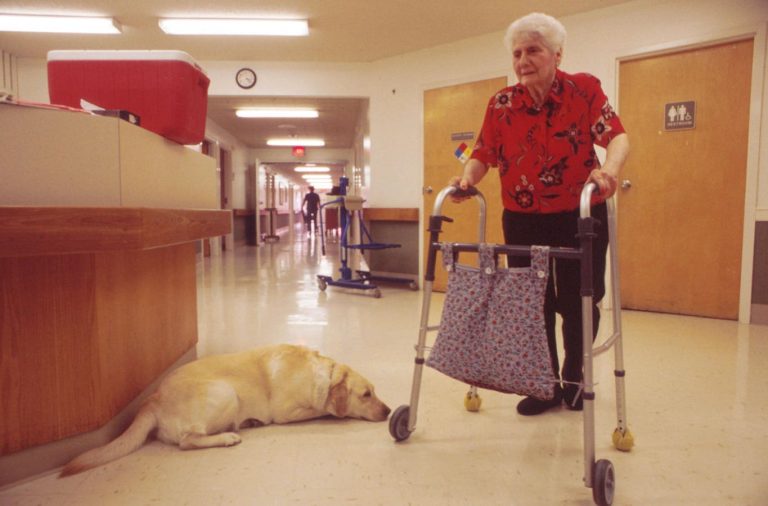Subsidizing home care for aging adults has been discussed in decades past. Now it is part of the political discussion once again. Can it ever be achieved? Consider the obstacles and possible benefits.
History
In the 1970’s, less than ten years after Medicare became the law of the land in 1965, public health officials recognized that putting elders into nursing homes was very costly. Once a person had reached what Medicare terms “maximum rehab potential”, a very subjective term, Medicare benefits ended for a nursing home stay. That is still the way Medicare works. At that time in the 1970s, the Office of Management and Budget decided to do a research project to assess the cost of providing outpatient services and home care to Medicare eligible people and compare that with the cost of nursing homes. I personally participated in the research site, in one of five cities chosen across the U.S. I was a public health nurse at that time. Our licensed home health agency did home visits and collected the data. We met with research subjects and did follow up questions at specific intervals to determine measurable outcomes with the patients.
Federal Government Efforts
Research protocols were established by the officials in Washington, D.C. They devised measurement criteria and questions to ask research subjects at specified intervals. We field researchers selected adults in their areas with specific criteria, primarily long term care needs. The project paid for a broad range of non-hospital based services, including medical assessment of complex problems, and home care workers. The home care workers assisted with what Medicare called “activities of daily living” (ADLs). That meant walking, dressing, toileting, eating, bathing, and getting in and out of bed onto a chair. Many people in nursing homes long term were there because they could not do these basic ADLs without assistance. They could not live independently at home and had no one to help them. When the Medicare benefit of up to 100 days in a nursing home ran out, they became eligible for Medicaid and it paid the ongoing, high cost of long term help with ADLs and other needs in nursing homes. Our healthcare system still works that way. The Federal government still pays part of the cost of Medicaid and the high cost of nursing home care for those who are eligible due to low income. These folks living long term in nursing homes may not need any skilled nursing care at all. Rather, they need daily help just to manage basic things.
Research Results
We collected data to find out how an older adult with long term care needs did after receiving home care assistance as compared with someone with similar needs did in a nursing home. The elders receiving these kinds of care at home did very well. They were much happier in their own homes. Health outcomes were better there. The cost of home care was considered as an expansion of Medicare benefits. Due to the expense of home care, and other factors, it was never implemented. Medicare does not cover long term elder care at home. It refers to it as “custodial care”. It is not for rehabilitation; rather it’s for maintenance.
Looking Ahead
According to the Bureau of Labor Statistics, fourteen percent of the population, 37.1 million people, provide unpaid eldercare in the United States. BLS defines eldercare providers as “individuals who provide unpaid care to someone age 65 or older who needs help because of a condition related to aging.”
The Sandwich Generation
According to the BLS, almost four and a half million people in the U.S. are members of the “sandwich generation”, meaning they are between two generations that need care. These people are parenting children under the age of 18 and also providing care for their own parent. This cohort has become the focus of political discussion of late, but their need has been apparent for decades. No one is helping them from government resources unless their elders are very low income and live in a state where limited home care is covered by Medicaid, not Medicare. They are under tremendous stress most of the time!
The Chances of Medicare Expansion Into Home Care
Based on past experience, it does not look likely that Medicare will be expanded to include a very expensive feature: paying anything for so-called custodial care at home. Ironically, Medicaid will pay for the sad condition of keeping a low income aging or disabled adult in a nursing home long term but will not offer any coverage at all for home care, even if it is less expensive over time than a nursing home. As public benefits are a source of controversy in every election year, current proposals to give Medicare recipients long term care at home is certain to be a continuing political flash point.
My Take
Having seen the struggle of families and elders themselves to pay for essential home care at AgingParents.com, I am frustrated. I know from personal observation that people who need long term help typically do better at home than in a care facility. It only makes sense that familiar surroundings are usually better. And yet, decades after Medicare became law, we still have the same issues with getting basic help at home for anyone who needs it but does not need nursing home care. Funding an additional benefit for our aging loved ones and their family caregivers will be an uphill battle. Quality of life for someone who just needs some help to stay at home is not discussed. It’s always about money and legislative will to act.
Read the full article here









